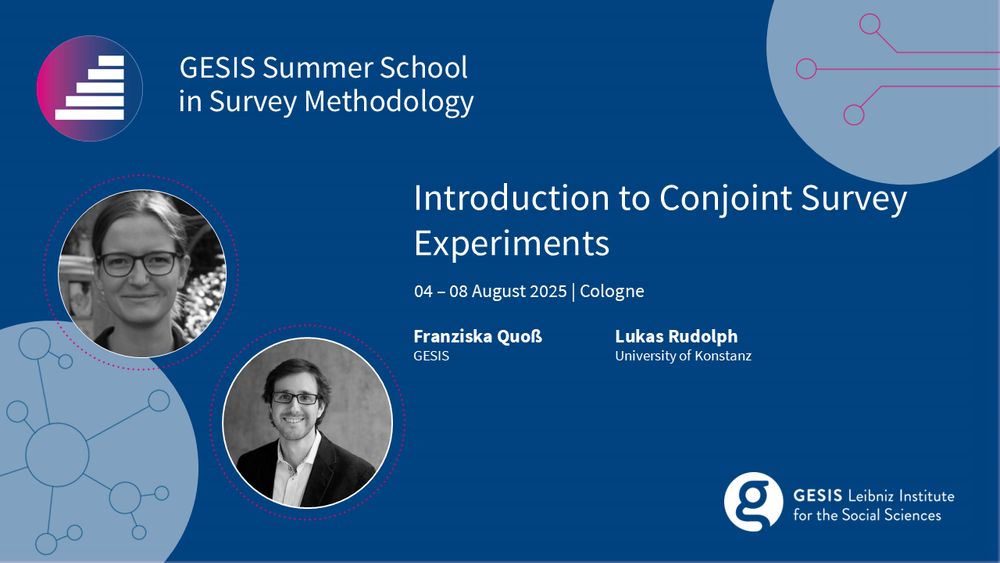Assistant Professor for Political Behavior @uni-konstanz.de || previously @lmumuenchen.bsky.social and @ethz.ch || https://www.lukas-rudolph.com
Reposted by Lukas Rudolph

🗓️ March 12-13, 2026
🗺️ Hannover, Germany
⏰ DL Dec 07, 2025
👉 Apply here: sosci.sowi.uni-mannheim.de/sekmethoden2...
👥 @gessler.bsky.social, @lukrudolph.bsky.social, @donyhu.bsky.social, Jona Baumert, Morten Harmening and I look forward to your submissions!

@polbehavior.bsky.social: doi.org/10.1007/s111...
Reposted by Lukas Rudolph

www.mdr.de/wissen/psych...
Reposted by Keith Smith, Lukas Rudolph

Book Now ➡️ t1p.de/GSS25-C6
Reposted by Lukas Rudolph

Procurement Corruption Scandal" out in @thejop.bsky.social @lukrudolph.bsky.social and I show that the "mask affair" cost the CDU 4%-points in elections. www.journals.uchicago.edu/doi/10.1086/... 1/
Reposted by Robert Huber, Lukas Rudolph

